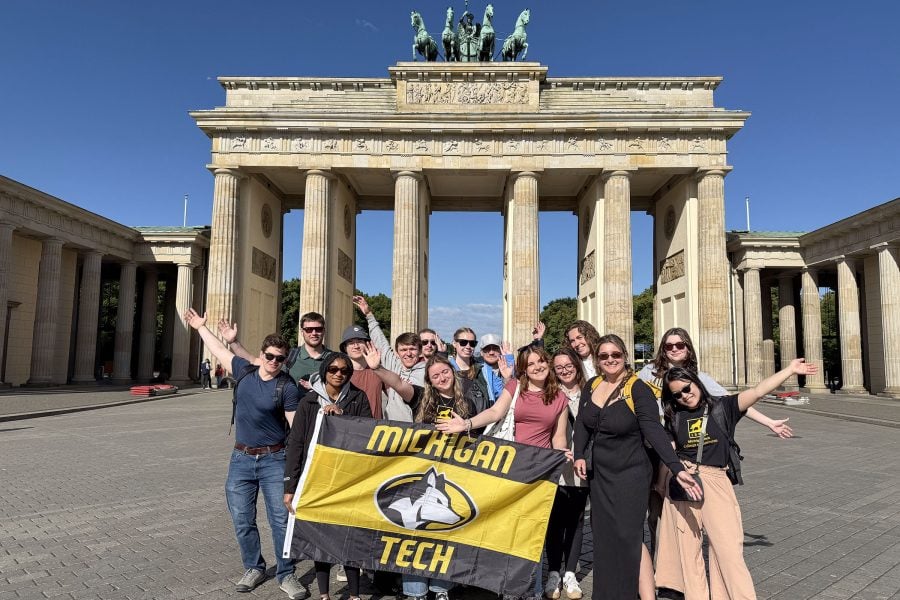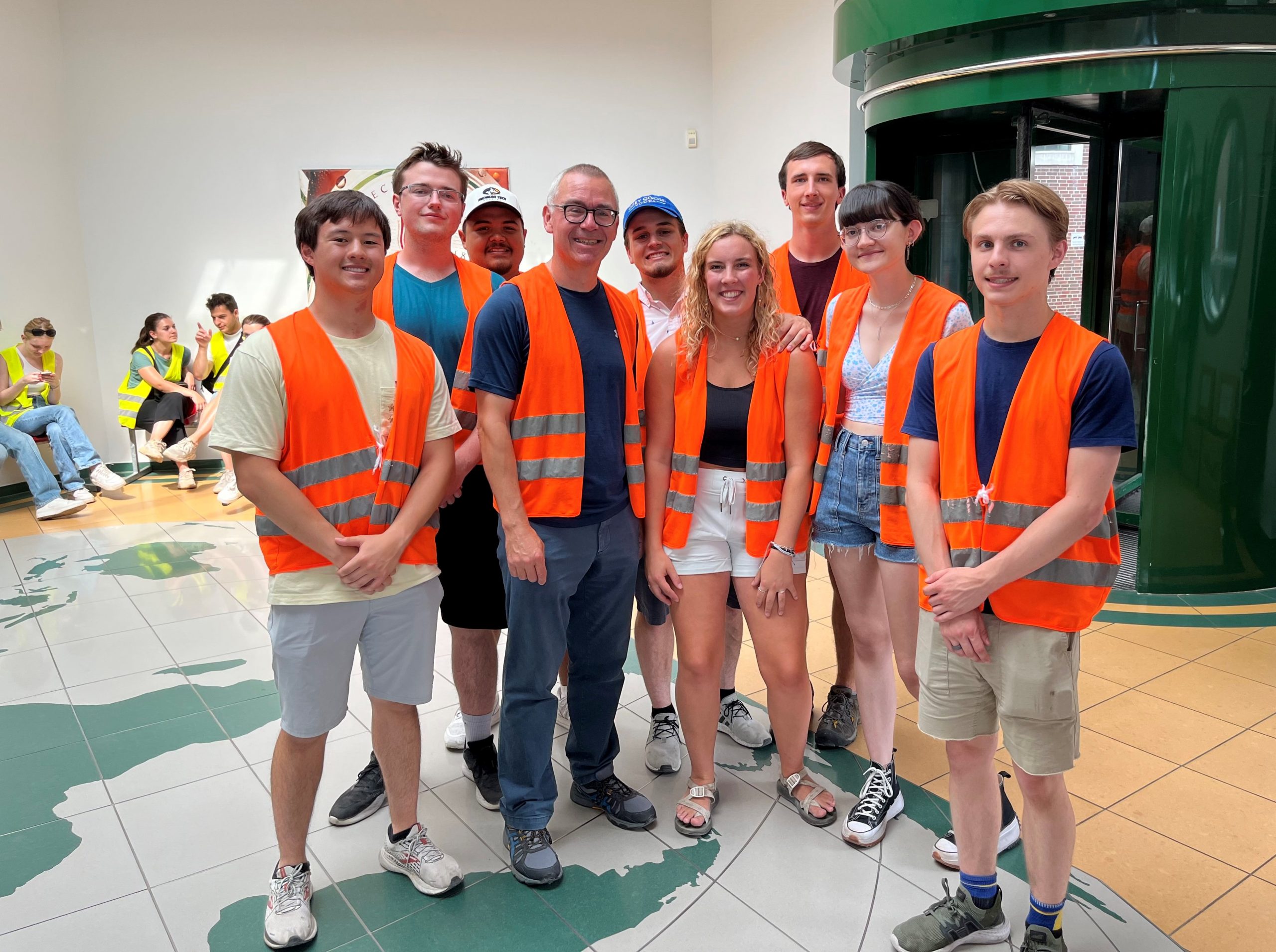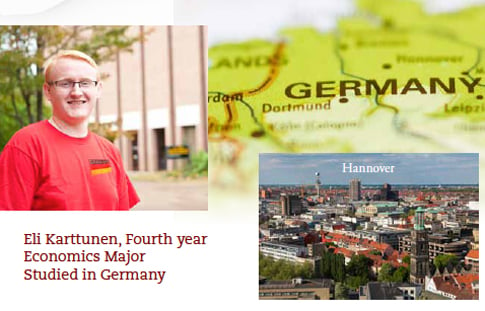
In May 2025, as finals wrapped up and campus quieted down,16 students from the College of Business traded their textbooks for passports and their backpacks for suitcases, swapping the Portage Canal for the hundreds of canals in the major port city of Hamburg, Germany. Alongside professors Junhong Min and Ulrich Schmelzle, they embarked on an in-depth exploration of global supply chain management, learning directly from industry giants such as Mercedes-Benz, Volkswagen, Airbus, and more. (Photos courtesy Michigan Tech Study Abroad Germany)


